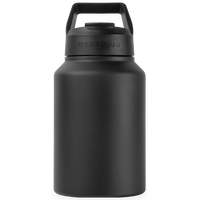
Hydration and Heat: The Challenges of Exercising in Hot Weather
Many athletes will push their bodies to achieve peak performance. However, when it comes to training or competing in hot and humid conditions, they face a new set of challenges that can significantly impact their performance and well-being. There are some unique difficulties athletes encounter when exercising in the heat and proper hydration plays an important role in preventing heat-related illnesses. Understanding the importance of staying hydrated in hot weather is essential for safeguarding health and optimizing athletic potential.

The Impact of Heat on Athletes:
Exercising in hot and humid conditions presents a range of challenges that can affect athletic performance and safety. Increased temperatures and humidity levels elevate the risk of heat-related illnesses such as heat exhaustion and heatstroke. Additionally, the body's cooling mechanisms, such as sweating, become less efficient in high heat, making it harder for athletes to regulate their body temperature.
- Dehydration: In hot weather, athletes experience increased sweating as the body attempts to cool down. This can lead to rapid fluid loss, increasing the risk of dehydration. Dehydration not only impairs physical performance but can also lead to dizziness, cramps, and fatigue.
- Electrolyte Imbalance: Sweating not only results in water loss but also depletes essential electrolytes such as sodium, potassium, and magnesium. An imbalance in electrolytes can impact muscle function and lead to cramping or muscle weakness.
- Heat-Related Illnesses: Prolonged exposure to high temperatures can lead to heat exhaustion or, in severe cases, heatstroke. Heat exhaustion symptoms include dizziness, nausea, weakness, and profuse sweating. Heatstroke is a medical emergency and requires immediate attention, as it can be life-threatening.

Importance of Proper Hydration:
Proper hydration is the cornerstone of managing the challenges of exercising in the heat and preventing heat-related illnesses. Staying adequately hydrated ensures that the body can effectively regulate its temperature and maintain optimal performance.
- Hydration Before Exercise: Begin hydrating well before exercising in the heat. Consume at least 16-20 ounces of water two to three hours before activity. This helps ensure that your body starts the exercise session well-hydrated.
- Hydration During Exercise: Drink fluids regularly during exercise, even if you don't feel thirsty. Aim to consume 7-10 ounces of water every 10-20 minutes, adjusting based on individual sweat rates and intensity of activity.
- Electrolyte Replacement: In addition to water, include electrolyte-rich beverages or snacks to replenish the minerals lost through sweating. Sports drinks or electrolyte tablets can help maintain electrolyte balance during prolonged exercise.
- Post-Exercise Hydration: Rehydrate after exercise by consuming water and electrolyte-rich foods or beverages. Including sodium-rich foods, such as pretzels or bananas, can aid in electrolyte replenishment.

For athletes, training and competing in hot weather poses unique challenges. Staying properly hydrated is a critical factor in maintaining athletic performance and preventing heat-related illnesses. By hydrating adequately before, during, and after exercise, athletes can optimize their performance and safeguard their well-being in hot and humid conditions. Remember, when it comes to training in the heat, hydration is the key to unlocking your full athletic potential and achieving success while keeping heat-related risks at bay.


























